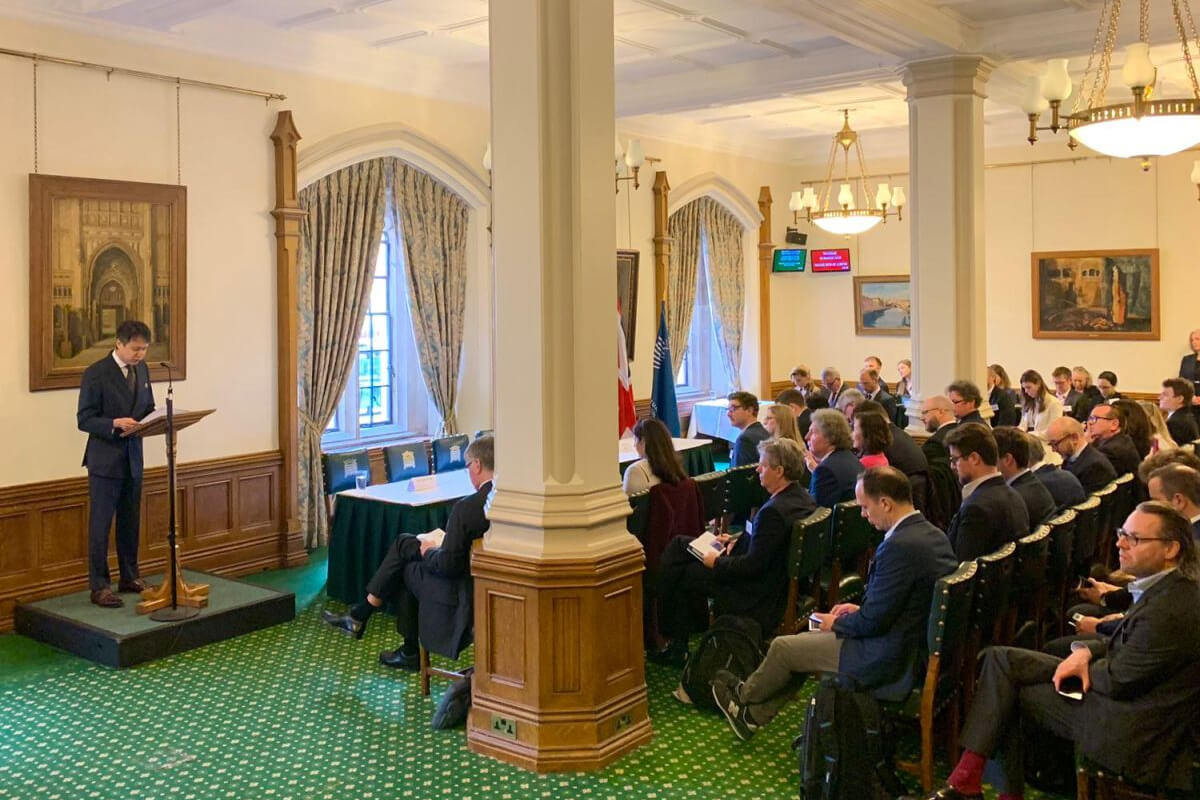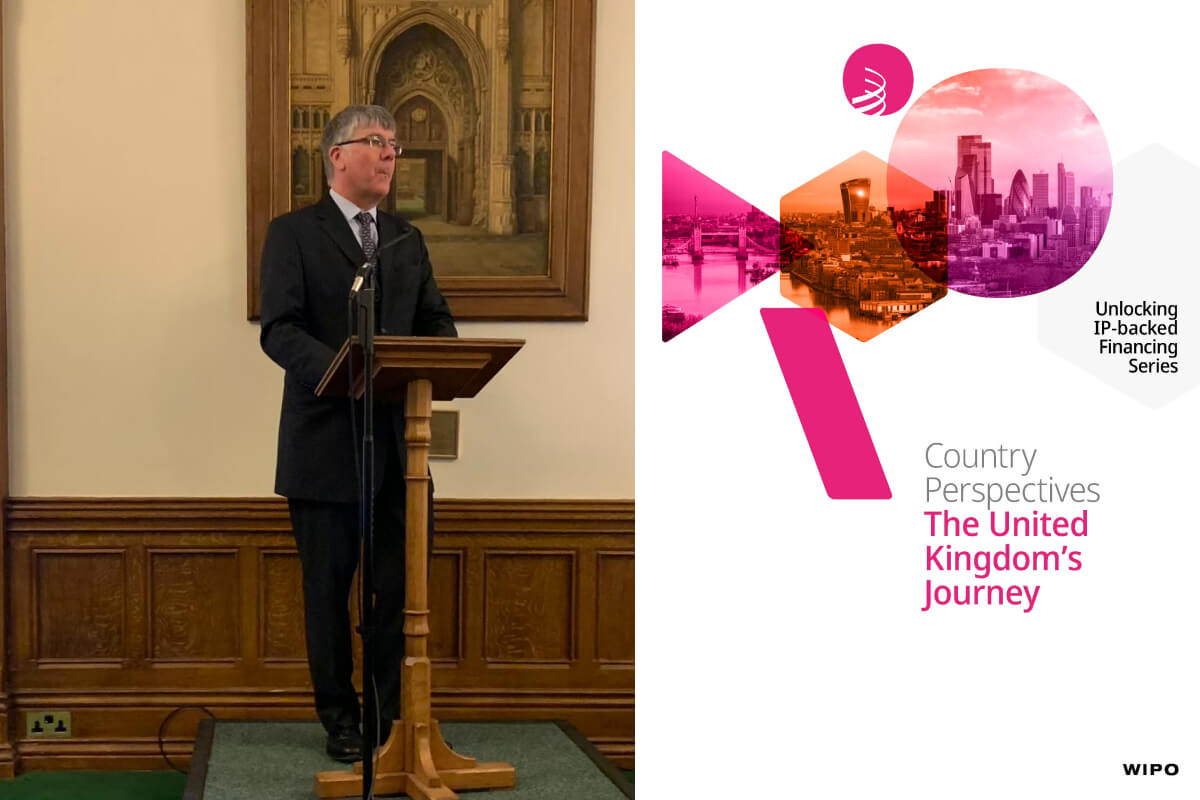Text of address by Martin Brassell, report editor, at the Parliamentary launch of ‘The UK’s Journey’ in WIPO’s Understanding IP Finance series
Firstly, many thanks to Viscount Camrose for hosting this event, and to Director-General Daren Tang and his team at WIPO for commissioning this report and joining us today.
Before I delve into the report, perhaps I should answer a more basic question. What do we mean by IP finance – and why should we (or more importantly, you) care about it?
At its core – IP finance simply means using intellectual property rights (like patents, copyright and trade marks) as a way to unlock funding.
As others have said, these are the assets that drive contemporary business value. So IP finance is about giving proper consideration to these non-physical assets, to better direct the flow of capital.
10 years ago, I co-authored the IPO’s ‘Banking on IP’ report. Then, as now, there was a focus on unlocking the growth potential of the UK’s small and medium enterprises (SMEs).
We noted then that the value of IP is often hidden – accounting rules mean many IP-rich firms appear to have weak balance sheets (and look exceptionally good at spending money).
Attitudinally, we found that equity investors generally ‘get’ the importance of IP – though it is just one of a number of things they consider. Whereas lenders have been brought up to draw a red line through any intangibles on the balance sheet – or even view them as a liability.
We characterised the lending problem as being two fundamental challenges. These are: high transaction costs – from getting to grips with the IP and structuring affordable loans (especially since intangibles do not attract capital relief under standard approaches) – and a lack of confidence in the recoverable value of IP assets.
A key reflection, as DG Tang has said, was that we need to promote better understanding of IP as an asset class rather than a purely legal construct.
As a form of personal property, IP can be bought, sold and used as security for a loan, much like any other asset.
Most of the assets lenders generally deal in are physical commodities. There are many different buyers for these; their price is fairly easy to establish; and they tend to be visible on the balance sheet.
IP does have a number of things in common with these other assets. It requires maintenance; it can be damaged; it doesn’t last for ever.
But it also has some important differences. IP is usually business-integral – and business-critical.
It is infinitely scalable, yet can still be scarce. Also, its value is context sensitive; it will appreciate if well managed, although (at the risk of sounding like an investment disclaimer), it can go down as well as up.
These are differences, not disadvantages. The whole point of IP is that it is not a commodity.

So, where have we come over the last ten years?
- We’ve realised that IP finance is not all about patents. They’re a great source of data, but every international scheme I know of that’s started with patents has subsequently been broadened out to include other forms of IP.
- We’ve also realised when it comes to debt, IP finance isn’t about start-ups. Start-ups carry equity levels of risk. They need money to build the IP that can then be used as security. But as a business grows, it can reduce its dependence on dilutive equity for growth capital and borrow instead.
- We know just how important it is to get this right. We didn’t have a Scaleup Institute in 2013, but we now know from its research that these scale-ups that account for just 0.5% of SMEs, also account for 58% of all SME turnover.
- We have clear evidence that IP is associated with better borrower behaviour. Research by the BBB and IPO in 2018 showed 40% lower propensity to default and 50% lower loss given default when registered IP is present. That doesn’t prove IP is a panacea – but let’s not pretend it is a coincidence either…
- We now have better data and tools to find, analyse and understand IP.
- We see that in insolvency, when the worst happens, IP often sells fastest and best.
- We have clearer and more comprehensive valuation standards, recently updated, thanks to the International Valuation Standards Council.
- And we have new insurance products that can address IP risk for banks as well as borrowers.
Most importantly, and as a result of all these developments, we have lenders who are now prepared to ‘learn it by doing it’: such as HSBC UK, and NatWest (and we’ll hear from Neil Bellamy of NatWest in a moment).
This shift – which, let’s not forget, has been led by industry – is significant. There is still a long road ahead, and turning IP-backed lending into a mainstream offer for high growth firms won’t happen overnight. However, the importance of IP advocacy across the accounting, finance and insurance landscape is clear.
So if you take just one thing away from you today, let it be this: IP finance is here, to stay.








